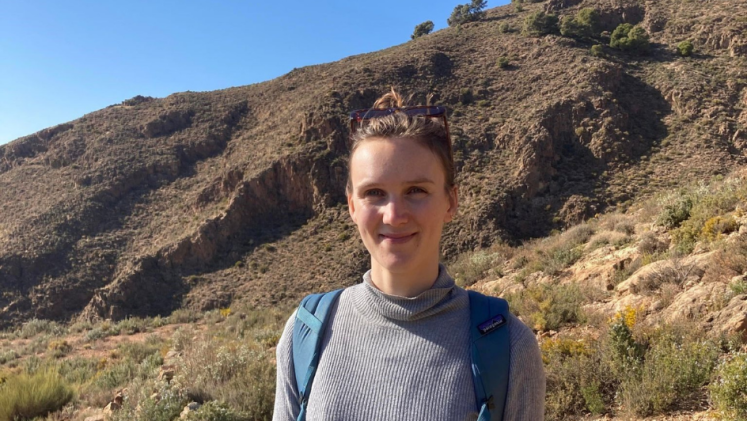Could you tell us about your work and research?
Currently, I am involved in a project called RethinkAction. It aims to find and identify land use-based adaptation and mitigation solutions to climate change, as well as to create a platform where these solutions are made available to be used by different stakeholders such as decision makers and policymakers, but also citizens. This last group can use them to improve access to knowledge on adaptation and mitigation solutions. There is an end-user community that participates in the project and gives their input on what is relevant for them and what climate risks they are experiencing. Within the project, six areas serve as case studies. They all face different climate challenges and are therefore representative for the various climate challenges Europe deals with as a continent. UNU-EHS leads the case study on Almería in Andalusia, Spain, where a so-called ‘plastic sea’ of greenhouses cover over 40,000 hectares of land.
What are the biggest threats to the agricultural sector that you try to tackle in Almería?
The main issue is water scarcity. The sector produces between 2.5 and 3.5 million tons of Europe’s fruits and vegetables. To do so, obviously many liters of water are needed. That water has traditionally been extracted from groundwater reservoirs, which are now depleted and overexploited. Climate change threatens the depletion of these reservoirs even further. We are looking into alternative water resources the sector can use. Techniques that are used and are being developed further are desalinizing water from the Mediterranean Sea, the creation of different water recycling schemes and more efficient irrigation measures.
Almería is an area where, without technology, it is almost impossible to grow food in the first place. Technological innovation is needed to secure the future of agricultural activity. However, solutions like desalinization are sometimes more energy intense than irrigation and therefore not a great solution from a mitigation perspective. We are looking into powering the sector with solar energy. No solution is perfect, but bringing together actors from different sectors and experts from different disciplines is key to developing solutions where trade-offs are mitigated as much as possible. The farming community works closely together with technical experts and researchers to create an innovation culture in which agriculture is made more water-efficient and sustainable. A close relationship between the science community and practitioners is a step in the right direction and is something that the RethinkAction project aims to contribute to as well.
Can you explain why farming is so important for the area?
Almería is the ideal place for this kind of greenhouse farming, because of the weather and the amount of sunny days throughout the year with plenty of wind coming in to ensure proper circulation of CO2 in the greenhouses. There is also a socio-economic side to why farming in the area is important – a side which must not be overlooked. The area used to be quite poor and underdeveloped. The sector has brought a lot of development to Almería and has given economic opportunities to many residents. It provides livelihoods, but also opportunities to participate in society. The wealth is distributed quite equally. Profits do not just go into the pockets of a few rich landowners. Land is often family-owned, with limited hectares of land per family. It provides a good living and brings social as well as economic opportunities. Therefore, it is understandable that many farmers are quite protective and proud of their farms and work. That does not mean there are no issues. For instance, migrant workers are not always being paid a proper salary, are often not provided adequate housing, lack essential worker´s rights, and work tends to be hard.
When you visited the project site in Almería, what impressed you most, and did you also have any concerns?
Humanity’s ability to adapt to climate circumstances was by far the most impressive. These farmers really made the impossible possible. The plastic sea can be seen from satellite images with rows and rows of white plastic. It feels dystopic at first glance but there is a great degree of human resilience when you look closer.
What concerned me was the poor living conditions that many migrants endure. Almería is an entry point for migrants coming from North Africa. Many of them work in the agricultural sector and make up a large part of the laborers in the sector. Because the sector is vulnerable to climate change, so are their jobs. Migrant workers also live in areas where they are exposed to many types of risks and lack access to basic services. For example, many live in slum areas around the greenhouses and deal with water shortages on a daily basis. There have been violent interventions from Spanish authorities to remove these slum areas without offering any viable housing alternatives. Additionally, as the impacts of climate change intensify, people who have lived in Almería their whole lives are now starting to question whether they will be able to stay there in the future. So, you could say that there are two ways the project deals with water scarcity and migration: on one hand the habitability of the area is at risk without proper adaptation measures, and on the other the way the area is a destination point for migrants seeking a better life because of the adaptation measures that have been implemented so far.



